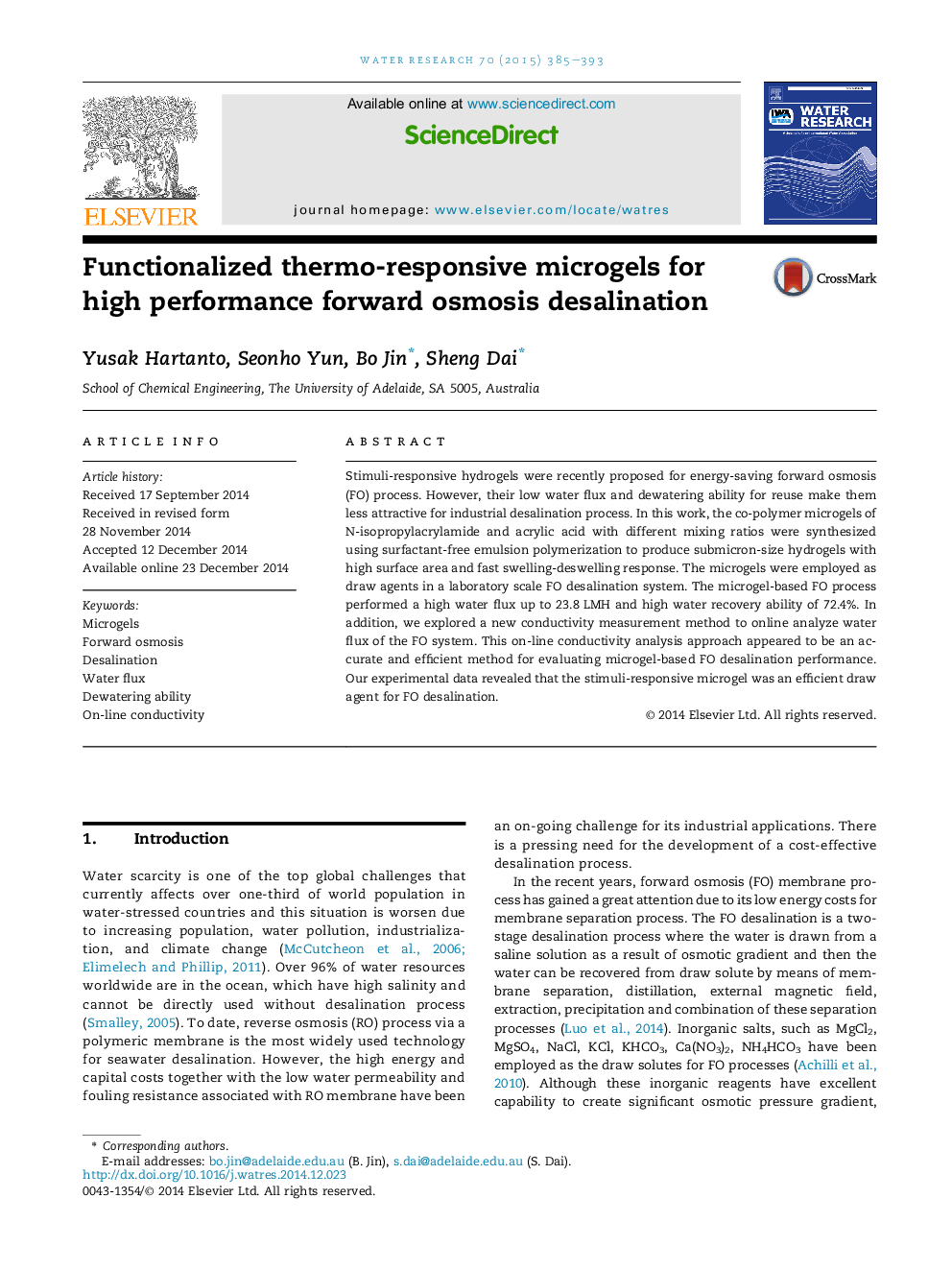| کد مقاله | کد نشریه | سال انتشار | مقاله انگلیسی | نسخه تمام متن |
|---|---|---|---|---|
| 4481322 | 1623098 | 2015 | 9 صفحه PDF | دانلود رایگان |
• New co-polymer microgels for cost-effective forward osmosis desalination process.
• An accurate and efficient on-line conductivity monitoring method to measure water flux of FO process.
• The functional acrylic acid co-monomer is able to influence the water flux and dewatering ability.
• Thermo-responsive microgels show promising recyclability of water flux and water recovery.
Stimuli-responsive hydrogels were recently proposed for energy-saving forward osmosis (FO) process. However, their low water flux and dewatering ability for reuse make them less attractive for industrial desalination process. In this work, the co-polymer microgels of N-isopropylacrylamide and acrylic acid with different mixing ratios were synthesized using surfactant-free emulsion polymerization to produce submicron-size hydrogels with high surface area and fast swelling-deswelling response. The microgels were employed as draw agents in a laboratory scale FO desalination system. The microgel-based FO process performed a high water flux up to 23.8 LMH and high water recovery ability of 72.4%. In addition, we explored a new conductivity measurement method to online analyze water flux of the FO system. This on-line conductivity analysis approach appeared to be an accurate and efficient method for evaluating microgel-based FO desalination performance. Our experimental data revealed that the stimuli-responsive microgel was an efficient draw agent for FO desalination.
Figure optionsDownload high-quality image (145 K)Download as PowerPoint slide
Journal: Water Research - Volume 70, 1 March 2015, Pages 385–393
